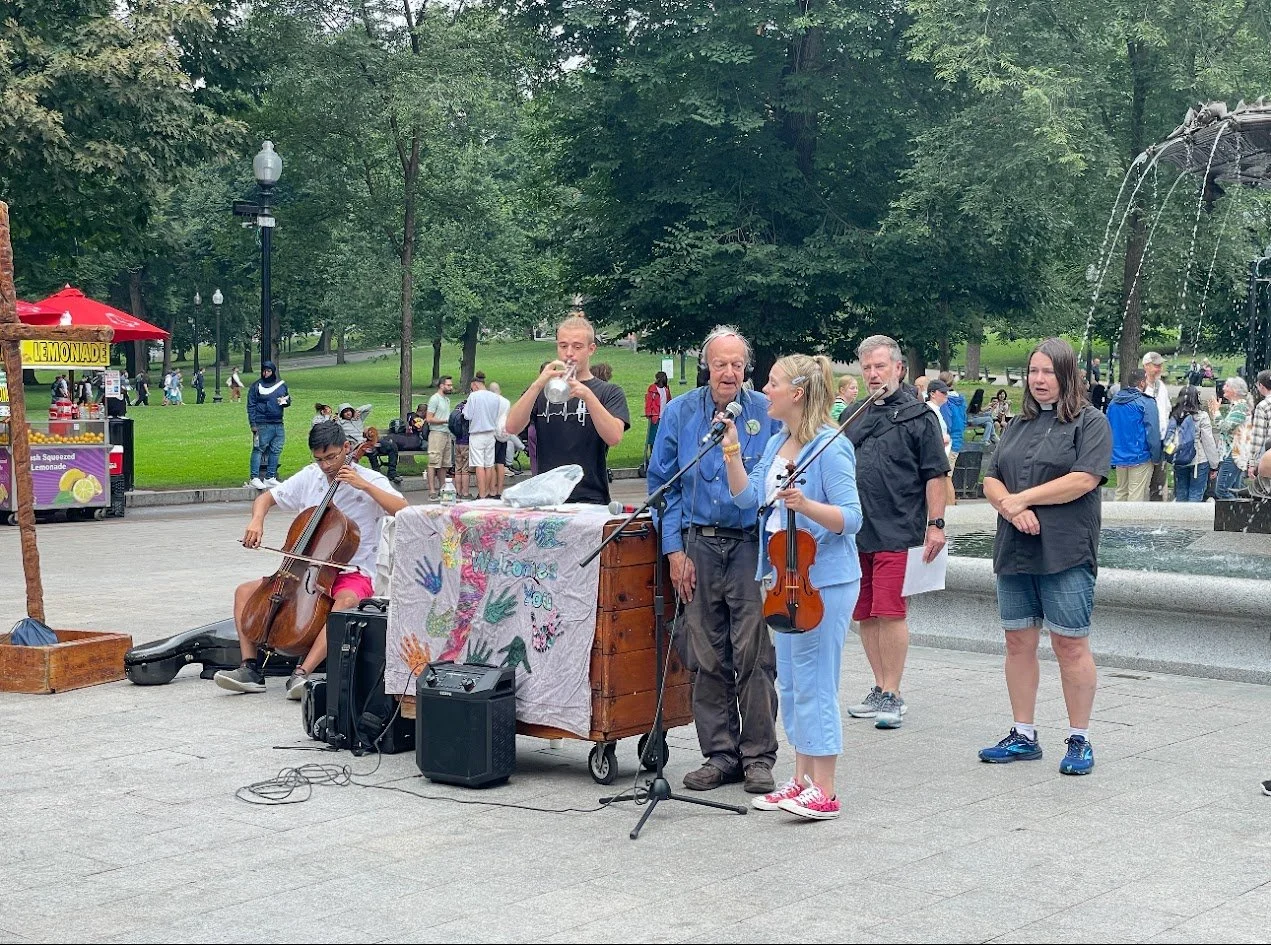Our values - What makes us unique
We are radically welcoming - no one is turned away
We meet people where they are
We care for both the physical and spiritual well-being of our community
We work together and learn from each other every day
We affirm all faiths and traditions
We are not a government agency and have no requirements for participation
History of common cathedral
In the summer of 1994, the Rev. Deborah W. Little began meeting with homeless people on the streets of Boston, offering sandwiches, friendship, and referrals. (Read the whole narrative of Rev. Little's journey to Street Priesthood)
From that simple beginning, common cathedral has evolved into an ecumenical church community that engages homeless and privileged people, service providers, clergy, seminarians, artists, and professionals of all kinds in activities that work to meet the physical, social, emotional and spiritual needs of homeless people in Boston.
“How did I get to the street? I wanted to learn about God, and I wanted to learn what it is to be a servant. I wanted to get closer to people on the street, to help, to understand, to learn, and to see what it means to love your neighbor ...
What did the Hebrew prophet mean, what did Jesus mean, when they said if you really want to move closer to the heart of life, to the heart of God, get closer to the poor?”
— Rev. Debbie Little
Want to learn how to become an Ecclesia Ministries Affiliate?
Find resources and local affiliates at this website: http://ecclesiaministriesmission.weebly.com/
Chronically homeless individuals, especially those who suffer from severe mental illness and/or addiction disorders, have a hard time escaping homelessness, finding permanent housing, and reintegrating at some level into community. For these individuals, perception of the world has been impaired by drugs, alcohol, and unsuccessful social experiences. There has been a loss of trust in oneself and others—a basic loss of belief. Reestablishing connection, trust, and belief is the heart of the recovery model of addiction treatment and is important spiritual work that provides successful outcomes for addicts. In the Handbook of Health and Religion (Oxford University Press, 2001), Drs. Harold G. Koenig and Harvey J. Cohen, both Professors of Medicine at Duke University, reviewed more than 1,600 studies, and found that across mental and physical disorders, religious involvement is overwhelmingly associated with positive physical and mental health outcomes.
common cathedral’s ministers are out on the streets nearly every day of the week offering prayer and companionship, and making referrals to social service agencies. Our weekly outdoor worship service, and mid-week programs, common art and street ministry, continue to provide community, inspiration and healing to thousands of un-housed men and women each year, and our spiritual care program in hospitals and jails allows us to maintain and deepen our connection with vulnerable men and women in need. While we provide a Christian context for our worship and spiritual reflection groups, we are a non-proselytizing ministry, open to broad discussions of belief and belief systems.



